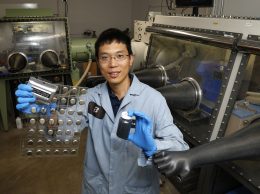SolarWorld learns what it’s like to be targeted by China

Henry Dubroff
Two years ago, teams at SolarWorld’s sales office in Camarillo and production center in Hillsboro, Oregon, were hurrying to complete a Department of Commerce anti-dumping complaint against Chinese competitors when they received an urgent communication.
An FBI field office in Camarillo wanted to give SolarWorld an important heads-up. Proprietary information had been hacked and the company was under persistent threat of having sensitive data extracted. The news was stunning.
The hackers, later identified in court documents as a team of Chinese government officials, had allegedly infiltrated the SolarWorld computer system, gleaning key information about highly sensitive pricing and other data that was going into the complaint.
In July, SolarWorld officials began toughening their cybersecurity systems. The final pieces of the security patches went into place in September. At that point, the security breaches stopped.
If my sources and readings of court documents are correct, that’s a pretty fair accounting of how SolarWorld’s offices in Ventura County turned out to be a pivotal part of indictments unsealed on May 20 by federal prosecutors.
The criminal complaints charged five members of the Chinese People’s Liberation Army with breaking into networks at six organizations, including U.S. Steel, Westinghouse Electric, Alcoa and the U.S. subsidiaries of German solar panel maker SolarWorld AG. The hackers operated from a 12-story office tower near Shanghai’s airport, the documents alleged.
“We were in the middle of a trade dispute. Among the data that was extracted was proprietary information that would be redacted from public view,” said Ben Santarris, U.S. spokesman for SolarWorld.
For its part, the Chinese government denounced the charges as “fabricated facts” and said the indictments could jeopardize U.S.-China relations.
But from SolarWorld’s perspective, the outrage was palpable.
After all, the company is the only major crystalline solar panel maker located outside of Asia after a pricing war decimated U.S. and European competitors and led to hundreds of jobs lost in Ventura County when SolarWorld shuttered the manufacturing part of its Camarillo facility.
In SolarWorld’s view, the Chinese already had an unfair advantage due to government subsidies and favorable currency valuations that helped their domestic panel makers. The hacking of proprietary data only added insult to injury. “We were subject to a different form of advantage seeking,” said Santarris.
The company did eventually win at least a partial victory in its complaint, filed with the Department of Commerce, that alleged violations of anti-dumping rules. Today, panels built and assembled in China are subject to tariff penalties, although Santarris said the Chinese makers can circumvent the penalties if they complete a portion of the process in Taiwan.
And Santarris said SolarWorld’s review of the security breach determined that private data about customers and employees was not affected.
However, the alleged violations would mean the Chinese government did gain important information about SolarWorld’s pricing strategy and research and development efforts, which would could make it more difficult for SolarWorld to compete worldwide in the burgeoning solar industry.
The May 20 indictments made big headlines and they allowed the U.S. to stand up for some large employers. But I doubt the cases will come to trial or, if they do, that anyone will be held accountable.
Still, it does offer a lesson about how much power a government — any government — has and how much nefarious government interference can hurt a private enterprise.
SolarWorld has proved itself to be a viable competitor when it comes to taking on rivals from around the world. But when the Chinese government and its military deploy their resources in support of a single export goal, the playing field is tilted too far in the wrong direction.
As Santarris put it, SolarWorld is being forced to contend with “export aggression that involves all the assets of the Chinese government.”
• Contact Henry Dubroff at [email protected].










